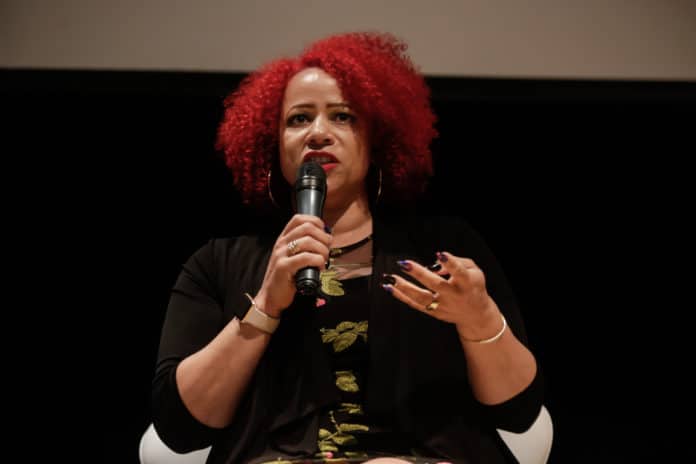The University of Minnesota has announced an event with Nikole Hannah-Jones, creator of the The 1619 Project, a journalistic endeavor that “aims to reframe the country’s history by placing the consequences of slavery and the contributions of black Americans at the very center of our national narrative.”
On the evening of Tuesday, Dec. 6, Jones will be participating in a “moderated discussion” with Kyndell Harkness, a photographer and assistant managing editor of diversity and community at the Star Tribune. The event, free and open to the public, is hosted by U of M’s Humphrey School of Public Affairs.
“Pulitzer Prize-winning writer Nikole Hannah-Jones will discuss her groundbreaking 1619 Project, which re-examined the legacy of slavery in the United States from the year the first enslaved Africans arrived in Virginia,” reads a U of M email announcing the event.
Jones, who serves as the Knight Chair in Race and Journalism at Howard University, a historically black college in Washington, D.C., was recently paid $40,000 to give a speech at a high school in nearby Arlington, Virginia.
First published by The New York Times Magazine in August 2019, The 1619 Project has been widely criticized by professional academic historians for its numerous errors of fact and interpretation.
In December 2019 five historians urged the Times to “issue prominent corrections” of the project’s historically inaccurate or misleading statements.
“Raising profound, unsettling questions about slavery and the nation’s past and present, as The 1619 Project does, is a praiseworthy and urgent public service. Nevertheless, we are dismayed at some of the factual errors in the project and the closed process behind it,” they wrote in a letter.
The historians also took issue with the Times’ “selective transparency” about the role of fact-checkers and consultants in the project, as well as its framing of the project as an “authoritative account” rather than as “the views of individual writers.”
“On August 19 of last year I listened in stunned silence as Nikole Hannah-Jones, a reporter for the New York Times, repeated an idea that I had vigorously argued against with her fact-checker: that the patriots fought the American Revolution in large part to preserve slavery in North America,” wrote Leslie Harris, a historian at Northwestern University who helped fact-check the project, in a March 2020 Politico article.
Since its creation The 1619 Project has taken on multiple shapes. An anthology titled “The 1619 Project: A New Origin Story” was published last November, which includes essays, poems, and fiction from numerous contributors grounded in the project’s racial and ideological themes.
In February 2021 the Pulitzer Center announced the creation of The 1619 Project Education Network, a program awarding “education professionals” grants to help them, among other things, “develop standards-aligned units that engage students in The 1619 Project, and other journalism and historical sources, to strengthen connections to existing curricula, practice media literacy skills, and build empathy.”
Educators from Minnesota’s Intermediate School District 287 were selected to join the program’s inaugural cohort last July.










